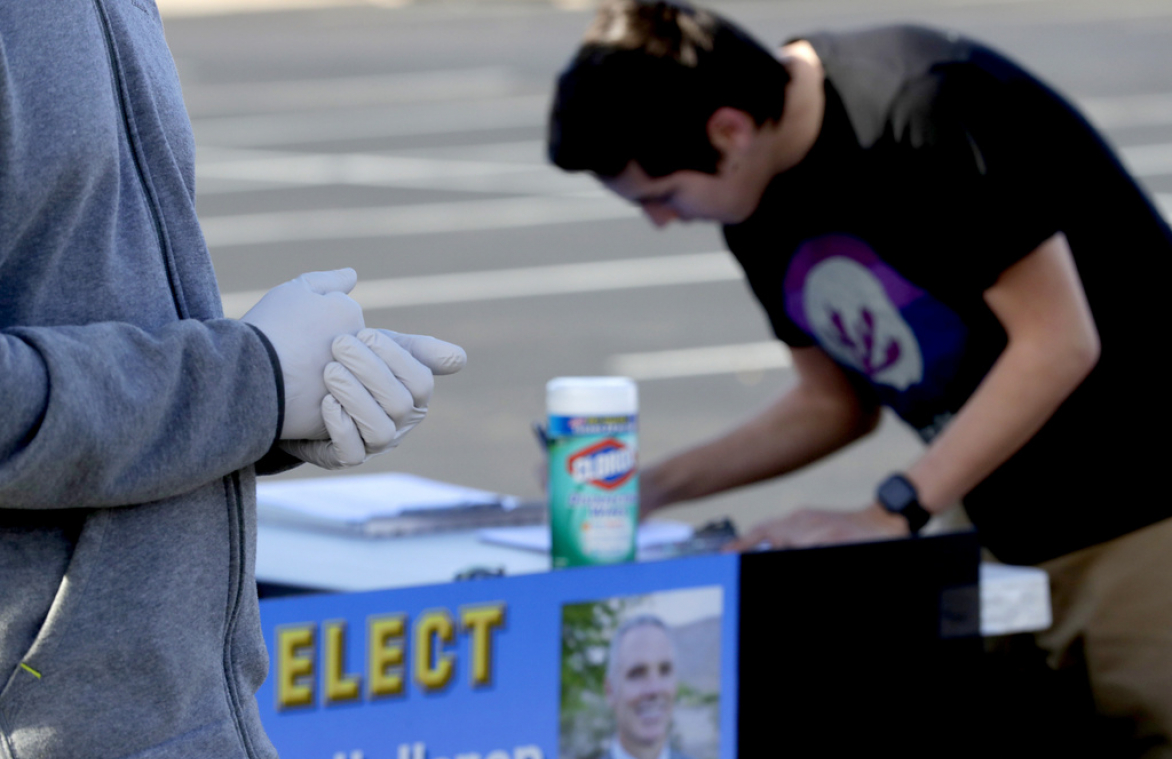PHOENIX (AP) — The Arizona Supreme Court ruled June 21 that a law criminalizing per-signature payment is constitutional, possibly complicating efforts for groups trying to get initiatives on the ballot.
The seven-member panel unanimously agreed the 2017 law does not violate the First Amendment rights of petition circulators, reversing an Arizona Court of Appeals opinion. The court found that the law was not broadly restrictive.
“The statute forbids only per-signature compensation, leaving other productivity-based compensation intact,” Justice Clint Bolick wrote. “Our clarification also means that the statute is not vague on its face.”
The case was brought by Petition Partners, the state’s largest signature-gathering firm. In 2020, then-Attorney General Mark Brnovich, a Republican, slapped the company with 50 misdemeanor criminal counts for its bonus programs that paid people for signatures collected for Proposition 208, a tax on incomes over $250,000.
Drew Chavez, owner of Petition Partners, said he sees the decision as a win because the high court definitively answered their questions about the law.
“It’s a victory for Arizona and the process moving forward,” Chavez told The Associated Press. “It was so vague it was impossible to follow. Today we got clarification, which is the only thing we were looking for.”
The company never paid people a per-signature rate, he added, but it did impose different pay scales that petition circulators could toggle between based on productivity, according to court documents.
“In this case all I wanted to do was pay our very good employees for signatures without us or them violating the law,” he said.
The case has been remanded to trial court. Petition Partners still faces up to $5 million in fines.
The appeals court ruled the law has a chilling effect on the free speech of people trying to get proposed laws on the ballot.
The Arizona Supreme Court ruled in 2020 that some of the bonus programs the company used ran afoul of the 2017 law. However, the court’s ruling did not touch on the measure’s constitutionality.
Former Republican state Sen. Vince Leach, who sponsored the original bill restricting one-for-one payment for petition signatures, said he was pleased with the court’s decision.
“I’m not surprised it was challenged,” said Leach, who is running for a state Senate seat in southern Arizona. “They have a business model. This interfered with it. While I can see that, I really don’t feel sympathetic about it.”
Compensating workers per signature increases the likelihood of fraud, according to Leach. But he said he is not opposed to petition circulators getting paid for their time.
The ban on per-signature payments is one of several restrictions on petition collectors enacted by the Republican-controlled Legislature after liberal groups used the citizen-initiative process to make changes lawmakers opposed, including an increase in the minimum wage.
The Free Speech Center newsletter offers a digest of First Amendment and news media-related news every other week. Subscribe for free here: https://bit.ly/3kG9uiJ

